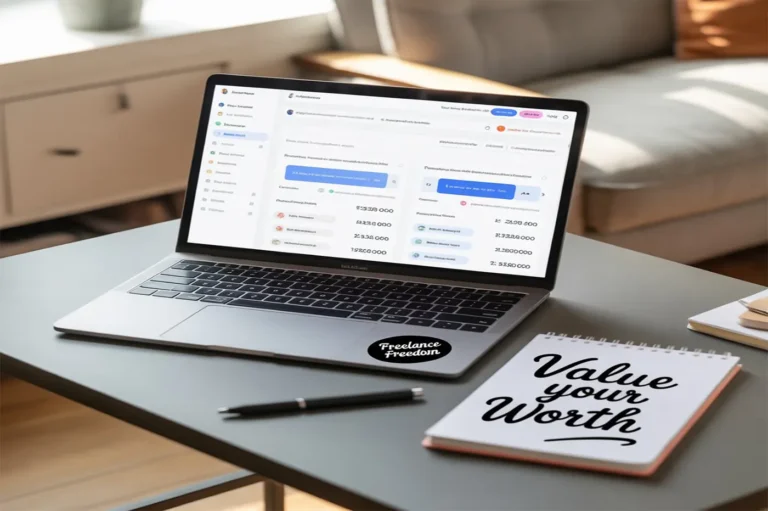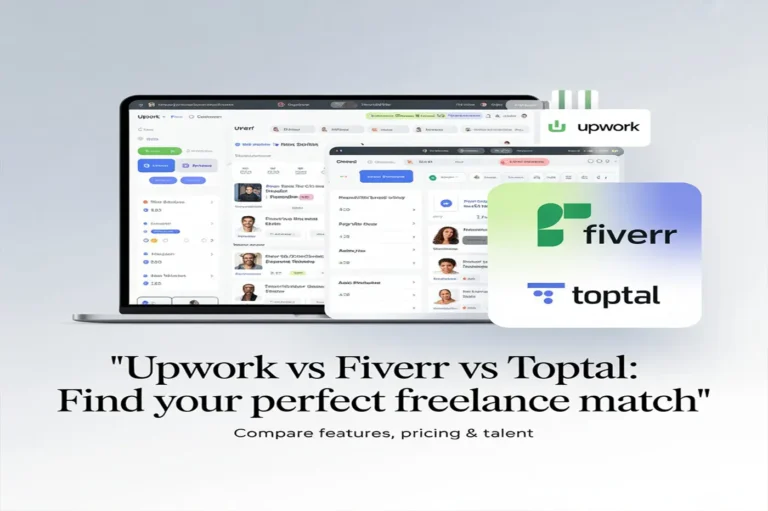Freelancing opens up a world of freedom, but it also comes with risks. New freelancers are often prime targets for scammers posing as legitimate clients or fake platforms.
From fake checks to shady job postings, scam tactics are getting more sophisticated every day. The good news? A few smart safety habits can protect you from most common traps.
In this guide, we’ll show you how to spot freelance scams, protect your work and payments, and build a freelance career that’s secure and scam-free.
Why Freelancers Get Targeted by Scammers
- Freelancers often work remotely and rarely meet clients face-to-face.
- Many new freelancers are eager for work and may overlook red flags.
- Scammers exploit job boards and social media to find easy victims.
Knowing this helps you stay alert and helps you say no when something feels off.
Common Freelance Scams to Watch Out For
Here are the top scams that catch beginners off guard:
1. Fake Check Scam
How it works
A “client” sends you a check for more than you’re owed and asks you to wire back the difference. The bank later finds the check is fake and you’re on the hook for the full amount.
How to avoid it
- Never accept overpayments.
- Legit clients don’t pay by check, use secure online payments or escrow.
2. Free Work Scam
How it works
A client asks for a “sample” or “test project”, but never pays and uses your work anyway.
How to avoid it
- Only provide free samples if you choose (e.g., existing work, not custom).
- For new work, require a paid test project or a small upfront deposit.
3. Phishing & Fake Platforms
How it works
You get a message about an amazing job, but to apply, you must click a suspicious link or enter your login details. Scammers steal your info.
How to avoid it
- Verify job offers by researching the company’s website and contact info.
- Never share your passwords.
- Use official websites or trusted freelance platforms.
4. Payment Delay Scam
How it works
A client keeps promising to pay “next week” but keeps stalling, and you keep working without getting paid.
How to avoid it
- Always use a contract.
- Get a deposit before starting big projects.
- Stop work immediately if payment is overdue.
How to Protect Yourself as a Freelancer
Here’s how smart freelancers stay safe even when working with strangers online:
1. Always Use a Contract
A clear written agreement protects you if something goes wrong. It should cover:
- Scope of work
- Payment amount and deadlines
- Revision limits
- What happens if a project is cancelled
Note that you can find free freelance contract templates on sites like Bonsai, AND.CO, or HelloSign.
2. Get Paid Securely
Stick to trusted payment methods:
- PayPal
- Wise
- Direct bank transfers
- Escrow services on Upwork, Fiverr, or Toptal
Avoid
- Wire transfers to unknown countries
- Western Union or MoneyGram for freelance work
- Accepting checks or gift cards
3. Research Every New Client
Before you accept a job:
- Look up the client’s company website.
- Check their social media profiles.
- Google their email or name and the word “scam”.
If something feels suspicious, trust your gut and walk away.
4. Limit How Much Work You Deliver Upfront
For new clients:
- Break big projects into milestones.
- Get partial payment after each stage.
- Never hand over final files until you receive the final payment.
5. Protect Your Personal Information
Never share:
- Your personal bank login details
- Your government ID, unless required by a verified platform
- Your home address, unless invoicing requires it (use a P.O. Box if possible)
Red Flags: How to Spot a Scam Quickly
- Payment sounds too good to be true huge pay for very little work.
Client wants to communicate only outside the freelance platform. - You’re asked to pay them first for training, tools, or software.
- Vague job details, poor grammar, or suspicious email addresses.
- They rush you to accept the job immediately, with no questions.
What to Do If You Get Scammed
Unfortunately, scams can happen to even careful freelancers. Here’s what to do:
- Stop all communication with the scammer.
- Report them to the freelance platform (Upwork, Fiverr, etc.).
- If you shared payment info, contact your bank immediately.
- Report phishing emails to your email provider.
- Share your experience in freelancer groups to warn others.
Key Takeaways
- Be cautious with new clients, verify their identity and payment method.
- Always use a contract and trusted payment channels.
- Don’t do free work for strangers.
- Learn to say no, scammers rely on your fear of losing work.
- Stay informed: the more you know, the harder you are to scam.
Conclusion
Freelancing can be safe, secure, and rewarding, as long as you work smart and protect yourself. By watching for red flags and following these simple steps, you’ll stay one step ahead of scammers and build a trustworthy client base.



